- Home
- Tanya Huff
A Peace Divided Page 24
A Peace Divided Read online
Page 24
“Old.”
“Yeah.”
Shoulder to shoulder, the Artek squabbling quietly in front of them, they walked around the courtyard, Torin explaining how the mercenaries seemed to be heading for a similar set of buildings.
“So you’re here doing recon?”
“Always.”
“That’s a terrifying work ethic, you that know that, right? You’ve got a light,” he continued grabbing her arm before she could sink an elbow into his ribs. “Should we eyeball the interiors?”
They needed to gather any information that could help take out the mercenaries without harming the hostages. “I’ll look . . . first,” she added at his expression.
He shrugged. “You’ve got the gun.”
Torin checked her scanner was still recording and stepped through the open door. And stopped. Roots nearly filled the room. From hair-thin to as big around as her thigh, they burst through the rear wall and down past the shattered slabs of the floor like tentacles, leaving no more than a square meter of empty space. Space Torin shared with a pile of beetle shells.
Firiv’vrak thought she might be able to get through the tangle. Keeleeki’ka called her an idiot. Craig stepped between them.
In the next room, the roots emerged from the rear wall at the opposite angle. Torin stepped back into the courtyard to try and spot the tree they supported.
“What if the weapon’s buried in that mess?”
“The weapon’s not our job. Our job is to free the hostages and arrest the . . .”
“But if it’s a weapon that could destroy the plastic aliens?” Firiv’vrak insisted. “Don’t we owe it to the casualties of the war to find it? And use it?”
“Doesn’t matter if we dig it up. Unless they change the Class 2 Designate, we can’t take it off world.”
“Commander Yurrisk will.”
Craig shrugged. “Yurrisk is broken. Functional, but broken. We don’t have that excuse.”
The next room was empty: no roots, no beetle shells, only a four-by-five-meter rectangle with an interior door near the far end of the opposite wall and a slab floor that looked as though something had broken through from beneath. Where the stone had been broken, or was missing entirely, shadows hinted at a lower level.
“Good place to hide a weapon.”
“Not our problem.” Torin stepped off the threshold. The floor seemed solid.
“If we found the weapon, we could trade it to Yurrisk for the hostages and then take him down with no innocents in the line of fire.”
“We’re not here to look for the weapon.”
“Then where are we going?”
“We . . .” She turned, but Craig was already in the room. He shrugged as both Artek skittered past. Curiosity—the commonality of sentience. “It seems we’re mapping the room.”
“I’m pretty sure there’s something alive down there, Gunny.” Firiv’vrak’s back end clung to a nearly vertical slab, her head half engulfed by a triangular hole—one antennae in, one out.
“Is it a constructed hole?”
“No. Looks like the dirt collapsed into a tunnel.” She shifted back, moving easily in spite of the angle. No surprise. As long as they moved fast enough, Artek could defy gravity for short periods.
Keeping her boots in contact with the stone, Torin shuffled away from the wall. If she could get a clear ping . . .
“Hold on.” Craig grabbed her webbing. “I don’t like the look of those fractures.”
“There’s less damage back here.” Keeleeki’ka waved from the other side of the vertical slab. “Stay close to the wall until the patch of lichen that looks like a seeter . . .”
“Ceremonial building,” Firiv’vrak explained when the translation program failed to find the reference. “Round. Pointed top. Most boring place in the universe.”
“Ritual holds our history!”
“Blah blah blah. There, Gunny.” Firiv’vrak unfolded an arm and pointed. “Then cross on the diagonal, aim for the interior door, and make a hard right when you pass me. The fractures predominantly run toward the interior wall.”
Predominantly. If she only had credit for every time that word had been used in a briefing only to come back and bite them on the ass.
“We’re heavier than we look.”
“Most mammals are.”
The patch of lichen didn’t look like a round building with a pointed top. When she reached it, Torin stepped away from the wall. This time, Craig let her go. She moved quickly, her helmet light throwing a broad band of illumination that sent the Arteks’ shadows dancing. Past the slab, she dropped to one knee and leaned forward.
“Well?” Craig demanded. He’d followed as far as the lichen. “Cellar or hole?”
“Can’t tell. Floor’s three point five seven meters down, a little deeper than the ceilings are high, and it’s flat . . .” The ping, even at its broadest setting, had shown only minor deviations from the one eighty. “. . . but I can’t be sure from here if it’s natural or worked.”
“From here? So you’re considering a drop, then?”
“No.” She stood. Disappointment smelled like fried shrimp; it wafted up from both Artek, and she suspected Craig would have projected it also had he been able. “We don’t have time. Once all the DLs are active, we need to make plans. It’s enough to know that there’s a possibility of lower levels in these kinds of ruins. However . . .” She cut off Firiv’vrak’s protest. “. . . we should take a look through the interior door since we’re here.”
Keeleeki’ka reached it first, Firiv’vrak close behind. “I believe it’s nothing more than a cor-ee-oh-door, like on your stations.”
The Artek didn’t build with corridors. Good to know. In case. Torin had ended one war; she wasn’t vain enough to assume she’d ended all of them.
“Instead of corridor, try hall,” Craig offered, still standing by the lichen. “Shorter word. And come on, even the H’san like halls.”
“The H’san story is not our story.”
“Join the club,” Torin muttered, shoved Keeleeki’ka back with her lower leg, and leaned out over the threshold. Her helmet light illuminated a meter-wide hall—whoever built it wasn’t broad—and, to the left, one door on both sides, although there’d been two rooms off the courtyard. To the right . . .
“Do you smell bitter . . .”
The translator lost the last word in the scrabble of claws on stone and a sound that was both a roar and a scream, both low and high . . .
Because there were two of them.
Larger and slightly smaller.
They had four legs, the front noticeably longer than the back. Narrow shoulders, pointy faces, short muzzles, a flat nose with a single horizontal nostril, lots of teeth. And scales. Niln scales, not fish. Two eyes closed to dark slits in the helmet light as they charged toward the door.
Torin caught the blow from the larger on her KC. The three claws on each front foot were short although the toes themselves were long. A fourth claw came out of the side of the foot at the point where the toes separated, the toe it was attached to extending back toward the . . . Was it called a wrist on a foreleg?
The teeth—and Torin was getting a good look into the animal’s mouth—were made for tearing at meat. She heaved her KC up until it fought for balance on two feet, then tipped it over to expose multiple swollen nipples.
Crap!
Mammal.
She spun on her heel.
One running stride back into the outside room.
Firiv’vrak had almost reached the exterior door. Craig was by the vertical slab, Keeleeki’ka beside him.
Two.
“Run!”
Three.
“Torin! Down!”
The cracked stone shifted when she hit it. It didn’t break, so she counted it a win as the smaller of th
e two animals leapt over her and sank its claws into the rear curve of Keeleeki’ka’s carapace.
Torin grabbed a back leg and yanked, rolling onto her back to bring her legs into play. As she braced her boots in its stomach, it pissed all over her.
Which made her feel better about slamming it into the corner.
“Shoot it!”
“Not if I don’t have to.” It had hit the wall hard enough to stun it. With limited choices, Torin turned her back on it again, braced one hand on the top of the slab, and jumped over the hole. “They’re protecting young!”
Muscles bulging across his back, Craig had covered half the space between the attack and the courtyard with the wounded Artek in his arms. “Firiv! When we reach the courtyard, we’ll need to barricade the door!”
“On it!”
The part of the floor she stood on seemed solid underfoot, so she spun around in time to see the larger animal charge through the door, up onto the slab, and launch itself into the air.
Torin ran forward, dropped, rolled, and sprang back onto her feet as it landed where she’d been standing.
It roared.
Torin roared back.
She had to keep it focused on her.
Fortunately, it seemed more than willing to stalk slowly forward, eyes locked on Torin’s face.
“One eighty!” On her verbal command the right side of her scanner showed her the view from behind. The smaller animal remained in the corner, blinking rapidly, short ears flat against its head. Still stunned.
Good.
That gave them all a chance to get out of the encounter alive.
Matching the advancing animal growl for growl, Torin shifted to the right. From the top of the slab, she’d command the high grou . . .
The floor tipped. She slid backward, the smooth surface of the stone and gravity combining to defeat the grip of her boots. Letting her KC hang, she grabbed for the edge with both hands as she went over, the new break creating a large enough hole to drop her into the lower level.
Her right hand caught the slab. It had held her weight once and it did again. Her left fingers found purchase in a diagonal crack. It widened. Stopped. Widened again. Stopped.
Her left elbow was still on the floor, her right arm fully extended, her lower body hanging over a three-and-a-half-meter drop.
The animal roared again and charged.
“Fuk it.” She’d be out of the fight at the bottom of the hole.
Maybe she could taunt it enough it would follow her down.
Hopefully, she wasn’t dropping into a pack of the things.
She snatched her fingers back out of the crack just before teeth scraped against the stone. Swung to the right and . . .
The animal collapsed, draped over the top of the slab.
Torin anchored her left hand again and stared at the tranquilizer dart in its shoulder. “R&D came up with a tranquilizer for a species they didn’t know exists?”
“No.” Craig leaned over the body and checked it was breathing. “It’s the ‘if it needs oxygen and weighs less than eighty kilos, it should work’ load.”
“And you were testing it for them?”
“Some of us don’t feel the need to test drugs on ourselves.” He wrapped both hands around her right wrist. “On three. Two. One . . .”
When she got a boot on the floor, she used it to push them both away from the edge. Then, shoving Craig behind her, she turned, weapon raised, as the right side of her screen showed the second, smaller animal leap to the top of the slab.
Then lie down beside its mate.
Torin backed toward the door.
Eyes locked on her face, it didn’t follow.
Once over the threshold, Torin exhaled and stepped aside so Firiv’vrak could block the lower half with a stone slab. There was a rectangle of fresh dirt in the courtyard.
“We’re stronger than we look. And I used a lever.”
“Basic mechanics. Well done.” Craig wiped sweat off his brow. “You think they’ll follow.”
She thought of the expression on the smaller animal’s face. “No. But that’s no reason to linger.”
Keeleeki’ka smelled strongly of lemon furniture polish, but the claws had only cracked the upper layers of her carapace and taken a triangular chunk out of the rear curve. Torin quickly sprayed the crack with sealant to keep out dirt and spores and whatever else the jungle was flinging around, then Firiv’vrak pushed her toward the outer wall of the courtyard and Torin spent a moment leaning against Craig’s side.
“Seriously? Tranquilizer gun?”
“I don’t want to kill things, but it’s a strange planet and I’m not entirely stupid.”
“How many shots?”
“Just the one. They haven’t exactly started mass production and were only willing to hand it over if I called this a field test.”
“What difference does it make what you call . . . never mind. Let’s move. Back to the VTA. We’ve got the pertinent details about this type of ruins.”
“That they’re dangerous?”
“Got it in one. We know. The mercenaries don’t. We can use that.”
They caught up to the Artek in time to see Kleeleeki’ka reach back to stroke the raised patterns on her carapace and wail, “But it’ll leave a scar.”
Firiv’vrak cracked her mandibles together. “Then you’ll finally wear a story you’re a part of!”
Profanity smelled of acetone although Torin could barely smell it over the urine dripping off her uniform.
SEVEN
“THIS IS WHAT I WAS LOOKING FOR! This is how you begin a new day!” Standing where the road ended in a series of broad steps covered in lichens and mosses, Yurrisk threw his arms wide as though he were introducing the ruins in front of him to known space.
Which he was, Arniz acknowledged silently. It had been millennia since the destruction, since eyes belonging to a sentient species had looked on the dark stone buildings and seen the shadows of the builders.
The use of the rarer, harder stone on a large, impressive building indicated a social hierarchy, an unfortunate requirement for sentience among every species who’d made their way to the stars. As Arniz understood it, fully cooperative societies missed opportunities for technological advances, but since she was no anthropologist, there was always a chance she’d gotten that wrong.
Both doorways were tall enough for most Humans, but narrow. While a short species could pass through a tall, narrow door, the rise of the steps required legs longer than that of the Niln, the Katrien, or the Krai. The width could have been a defensive decision, that theory supported by the difficulty in accessing the ground-floor windows which were horizontal openings a meter long by half a meter wide almost two meters from the ground. The windows on the second floor were isosceles triangles.
Architecture. Arniz’s tail rose. It wasn’t difficult.
Weighed against the implications of a defensive design was a clear love of nonrepresentational decoration; abstract swoops and curls visible on cornices and pilasters in spite of wear.
“We still have to find the weapon.”
Arniz blinked as Qurn’s voice brought her back to the road and exhaustion, and the presence of creatures with guns. She reminded herself that she hadn’t been clearing the way to the ruins but to what the ruins were thought to contain.
“It’ll be in there.” Yurrisk sounded like a true believer. Arniz could hear desperation under his words. “Just look at this place. It’s important. It looks like a government building, and government buildings hold armories.”
It might look like a Krai government building, although Arniz couldn’t see how given the whole arboreal living. It could have been a pre-destruction bakery.
Qurn pulled off a glove and laid the backs of pale fingers against Yurrisk’s cheek. “We’ll keep her flying.”<
br />
“Yes.” He pressed his face into her touch for a moment, then straightened, twitched his cuffs into place, and swept a slow, considering gaze around those watching. “You.”
Arniz considered glancing behind her. Decided she didn’t have enough energy to be the gravel in the tilth. “Me?”
“Yes, you. Find a latrine. Scan it. Find another. Scan that. The largest concentration of plastic residue will mark the definitive battle.”
That almost made sense. It had nothing whatsoever to do with where the alleged weapon might have been placed afterward, but, on its own, recognizing that it was speculation and not science, it wasn’t entirely without merit. She swayed, shifted her stance to stay upright, decided not to bother, and sank into a squat. Dreams of finding plastic bodies with familiar faces had woken her six or seven times during the night. When they’d been hustled out of the nest just after dawn, every muscle in her body had ached and her joints felt as though they’d been filled with grit. “I’ll need assistance,” she said. The air tasted bitter. “You murdered my ancillary.”
“I didn’t . . .”
“Fine. You allowed my ancillary to be murdered.”
“She threatened the lives of my crew.”
“Not the second murder.” Arniz slapped her tail against the ground. “The first.”
Leaning in, Qurn murmured by his ear.
“Of course,” he said when she pulled back, “Martin’s lesson.”
A quick glance showed Martin standing with one hand on his weapon, waving away insects with the other.
“That death expedited cooperation and not only kept us safe, but kept more of you safe.” His nostril ridges closed. “Although it didn’t stop the other from being an idiot. From endangering everyone. I’m sure she wouldn’t have considered being a hero if she knew what that entailed. Heroes are . . . Heroes don’t . . .” He swayed to the right, then right again. Arniz tasted the air. She’d seen him do that before. He swallowed and made a second sweep of the crowd. “You!”
Salitwisi had been staring at the structure in silent admiration, hand opening and closing around the place his confiscated slate should be. He jerked at the sound. “No, not me. This is actually architecture, not buried lines of rock and educated guessing. I’m . . .” Arniz could almost see him searching the most convincing way to make his point. “My specialty is architecture.” He clutched at the fabric over his chest. “No one on this planet is better suited to helping you right now.”

 Child of the Grove
Child of the Grove Blood Lines
Blood Lines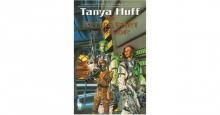 What Manner of Man
What Manner of Man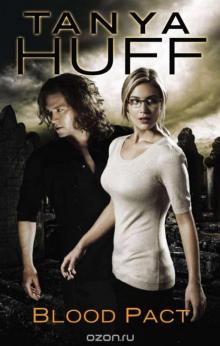 Blood Pact
Blood Pact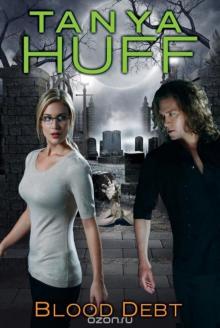 Blood Debt
Blood Debt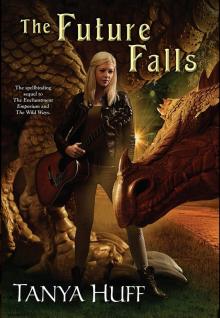 The Wild Ways
The Wild Ways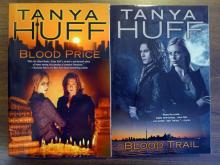 Blood Trail
Blood Trail Blood Shot
Blood Shot Wizard of the Grove
Wizard of the Grove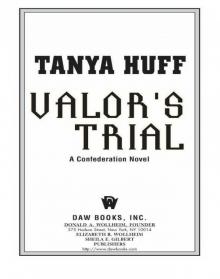 Valor's Trial
Valor's Trial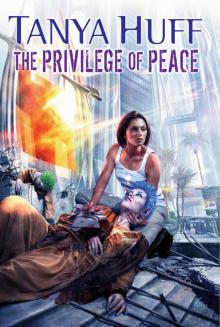 The Privilege of Peace
The Privilege of Peace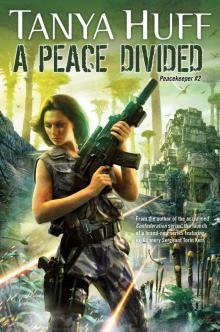 A Peace Divided
A Peace Divided Three Quarters
Three Quarters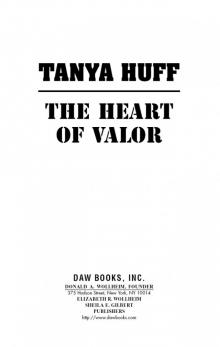 The Heart of Valor
The Heart of Valor No Quarter
No Quarter The Demon's Den and Other Tales of Valdemar
The Demon's Den and Other Tales of Valdemar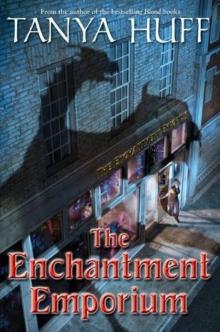 Enchantment Emporium
Enchantment Emporium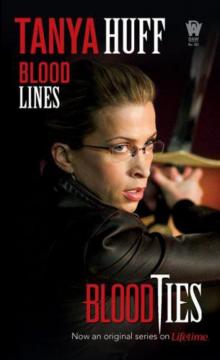 3 Blood Lines
3 Blood Lines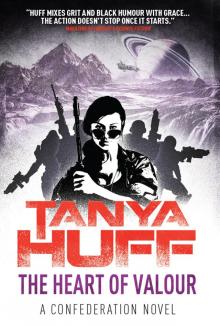 The Heart of Valour
The Heart of Valour Smoke and Ashes
Smoke and Ashes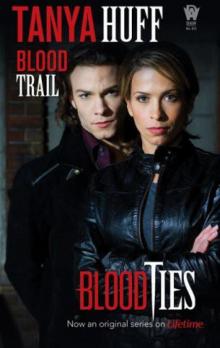 2 Blood Trail
2 Blood Trail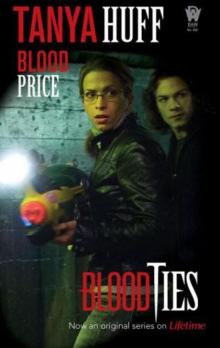 1 Blood Price
1 Blood Price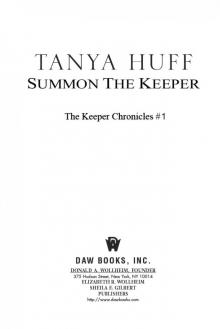 Summon the Keeper
Summon the Keeper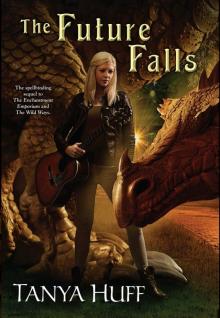 The Future Falls
The Future Falls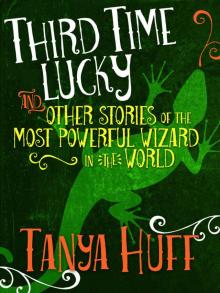 Third Time Lucky: And Other Stories of the Most Powerful Wizard in the World
Third Time Lucky: And Other Stories of the Most Powerful Wizard in the World The Second Summoning
The Second Summoning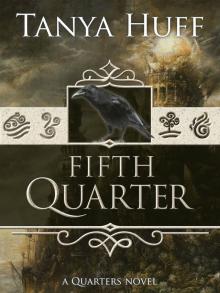 Fifth Quarter
Fifth Quarter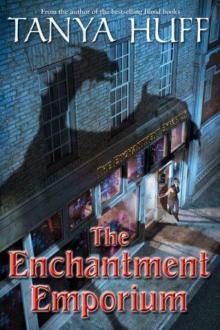 The Enchantment Emporium
The Enchantment Emporium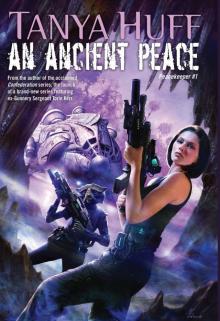 An Ancient Peace
An Ancient Peace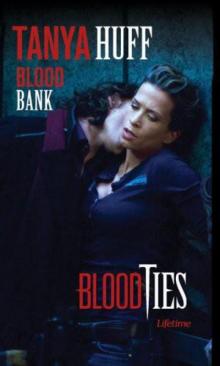 Blood Bank
Blood Bank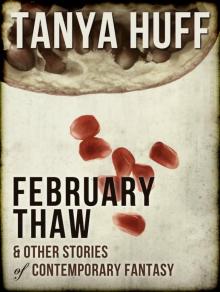 February Thaw
February Thaw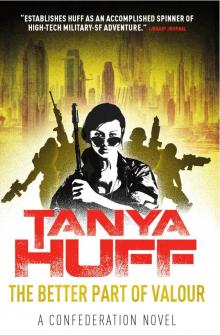 The Better Part of Valour
The Better Part of Valour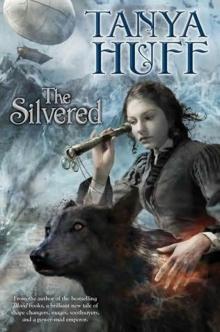 The Silvered
The Silvered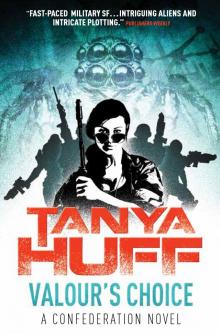 Valour's Choice
Valour's Choice Smoke and Shadows
Smoke and Shadows Sing the Four Quarters
Sing the Four Quarters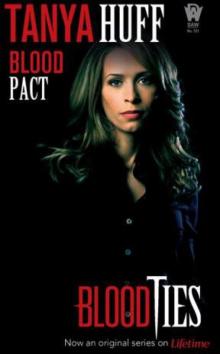 4 Blood Pact
4 Blood Pact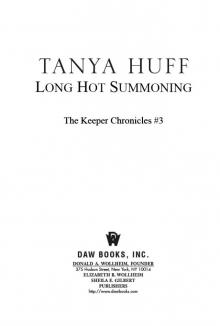 Long Hot Summoning
Long Hot Summoning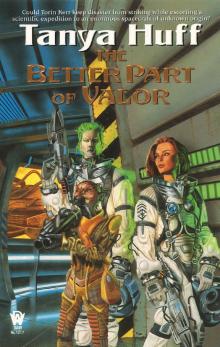 The Better Part of Valor
The Better Part of Valor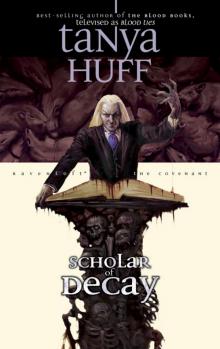 Scholar of Decay
Scholar of Decay He Said, Sidhe Said
He Said, Sidhe Said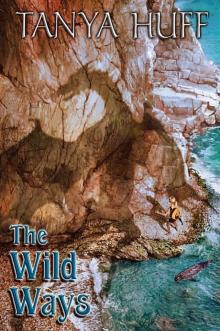 Wild Ways
Wild Ways Gate of Darkness, Circle of Light
Gate of Darkness, Circle of Light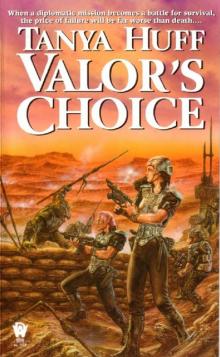 Valor's Choice
Valor's Choice Swan's Braid and Other Tales of Terizan
Swan's Braid and Other Tales of Terizan